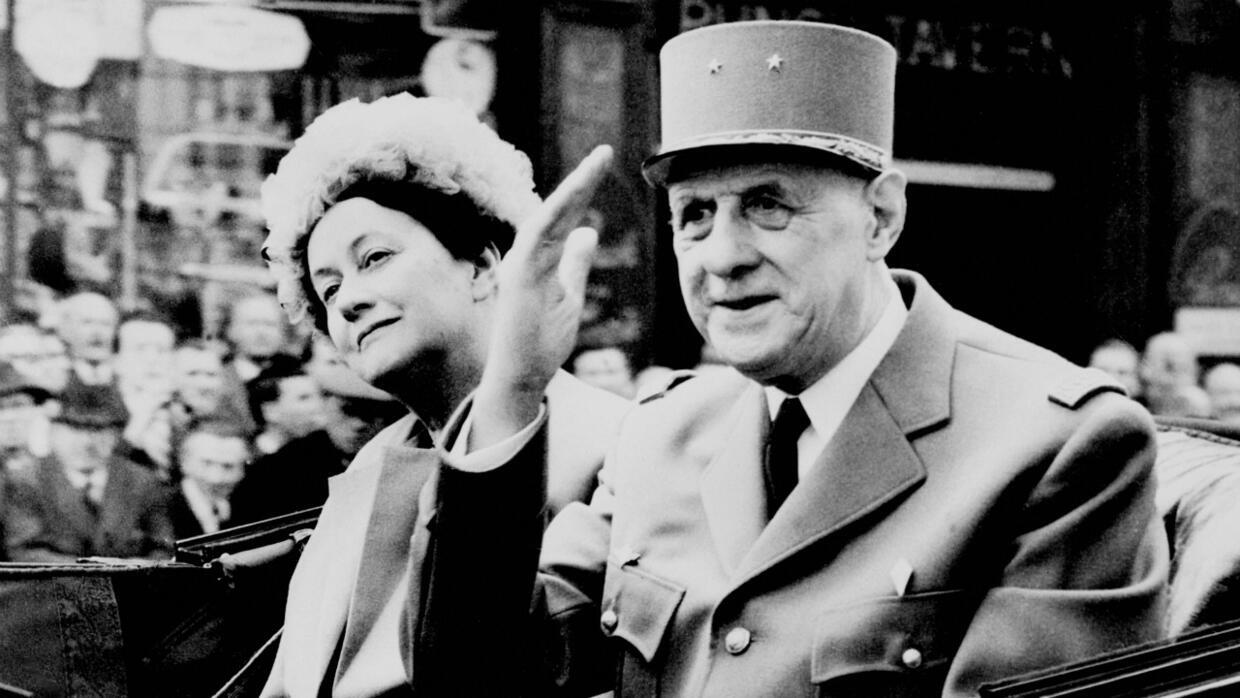The famous press conferences of Charles de Gaulle have remained in history. One of them sounds especially close to fifty years after his death. On January 14, 1963, then President of the Republic, the General is questioned on Britain's application for membership of the Common Market. The man of 18-June opposes an end of non-reception at the entry of the British within the Europe of the Six. While the United Kingdom could leave the European Union on October 31, some perceive in this opposition a prophetic discourse.
To the journalists present in the room, Charles de Gaulle depicts indeed a Great Britain which already wants to impose "its own conditions". This poses undoubtedly to each of the six states and that poses to England problems of a very big dimension, "he insists. According to him, the "insular" character of his neighbor across the Channel determines a "structure" which differs "profoundly from that of the mainlanders". "It is maritime.It is bound by its trade, its markets, its supplies to the most diverse countries, and often the most distant.It has an essentially industrial and commercial activity, and very little agricultural.It has in all its work of habits and traditions very marked, very original, "summarizes Charles de Gaulle.
"A typical Gaullian statement"
For the British historian Jonathan Fenby, author of a biography on the former French president "The General: Charles De Gaulle and the France He Saved", this is a " Gaullist declaration that leaves no room for compromise". But beyond a simple land and sea incompatibility between England and its neighbors, this De Gaulle specialist sees it above all a fear at the time of the former head of State of a weakening of France within the Six. "He was determined that France should have the leading role in the common market and its evolution.It must be remembered that his government was carrying out a very broad program of economic reform and that, personally, he had undertaken the steps to establish the partnership with Germany in which he saw France in the leading role.He did not want this vision to be destabilized by Britain and a possible agreement between London and Germany and other countries " , he summarizes.
Jonathan Fenby also points out another argument. De Gaulle expressed his opposition to this accession for fear that the United Kingdom acts as a Trojan horse of the United States: "For him, the independence of Europe to the United States was paramount and he never forgot the links between London and Washington, which he said acted against France's interests during the Second World War, and the nuclear accords approved by Prime Minister Harold Macmillan with the United States at that time reinforced his suspicions".
Not comparable times
Four years later, in 1967, Charles de Gaulle continued to say no to Britain by vetoing a new membership and even going so far as to say: "To bring England in, it would be for the Six to give in advance their consent to all the artifices, delays and pretense, which would tend to conceal the destruction of a building that was built at the cost of so much pain and in the midst of so much hope. "
More than five decades later, some want to see in these remarks a premonitory vision, especially among supporters of an exit from the EU. But for Jonathan Fenby, it would be simplistic to compare the two epochs: "The European Union has evolved a lot since the 1960s and it would be incorrect to impose the general's views on the current community of 27. It should also be added that the pro-Brexit camp has always refused to recognize the evolution of the European Union and the possibilities it opens for Great Britain ".
The historian, however, amuses himself with imagining what Charles de Gaulle might have thought of the current crisis in Europe: "To use a term he used a few years later, he would have qualified the situation handle of 'doglit' and would have recommended to the 27 to continue their work without worrying too much about this recalcitrant member and, according to him, of its non-European character ".

